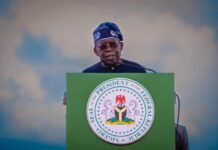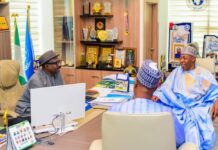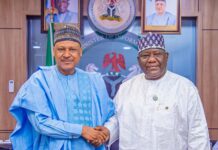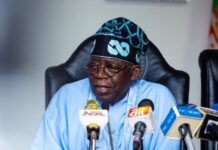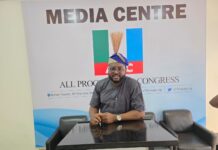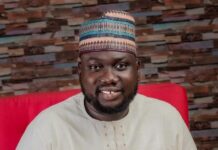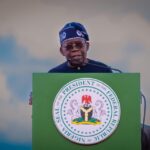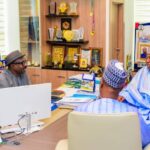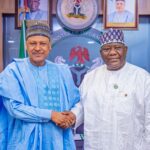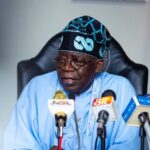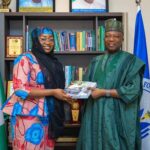In the aftermath of the #EndSARS protest that has been described as an hurricane, especially with its undisguised achievement of waking up the consciousness of Nigerians about the issues of creating opportunities for young people, the debate about a youth-led political leadership has again been ignited.
Many have suggested for the youths to translate their anger against the perceived mis-governance of the older generation to a political advantage and take over power. The more optimistic among the youths have even announced a determination to kick out old people from politics altogether.
Like I have always say, I believe a nation attains prosperity by mixing the energy and determination of the young with the wisdom and foresight of the older people. I’ll therefore not be one to call for a blanket ‘overthrow’ of every man in politics who has grey hairs. No.
However, a particular message I have read severally on Facebook in the last few days have led me to worry if people actually understand what we meant when we insist on youth political inclusion.
To situate the point I wish to make in proper perspective, I will quote the message in question verbatim. It read, “In fact the two Presidential candidates are 74 and 78yrs old respectively. Their Senate Majority leader (Mitch McConnell) is 78yrs old and has been in the senate for 35yrs.
“Their House is led by an 80yrs old woman (Nancy Pelosi) and she’s been there for 31yrs. Nigeria’s problem is not age but mentality: “turn by turn”, “chop-I-chop”, “Yahoo Yahoo is brain at work”, “cheating is smartness” etc. No nation becomes better until they change their mentality.
“BEING YOUNG IS NOT AN ADVANTAGE UNLESS….Yahaya Bello was 40, Dimeji Bankole was 34, Orji Kalu was 39.
Gov. Yahaya Bello was born on 18th July 1975. He became governor on Jan 27th 2016 aged 40yrs.
“Anyim Pius Anyim was born 19th Feb. 1961. He was elected Senate President in August 2000 aged 39. Let’s talk about Dimeji Bankole. He was born 14th, Nov. 1969 and was elected into house of Reps in 2003 when he was just 34!! He later became speaker of house of Reps in Nov 2007 at 38yrs as a bachelor.
“Let me shock you more….Orji Uzor Kalu was born on 21st, April 1960 and was elected in 1999 at just 39. AM I COMMUNICATING? Donald Duke was born 30-11-1961, also elected governor of Cross River State in 1999 at 38.
“These are some of the YOUTHS who had found themselves in leadership positions. Did they do things differently? What indelible marks would you say Dimeji left as speaker being a young man? What of Orji Uzor Kalu? Did he serve Abia State differently and better as a young man?”
While I can relate with the writer’s sentiment that age in itself does not determines one’s efficiency in leadership, it’s a dangerous misunderstanding to use the alleged poor performance of the young people who have held leadership positions in the past to negate the campaign for youth political inclusion.
While I do not agree that all the young leaders (as they then were) listed in that viral message failed while they held positions, for there are glaring results to justify the performance of some of them, I equally think it is an incomplete argument to rate the performance of those mentioned without a recourse to how they emerged in the first instance.
For instance, in 1999, the old politicians who have witnessed the brutality of the military, with many of them having just survived humongous jail terms, were skeptical about the transition programme. With the exception of some retired military officers who were part of the pre-1999 political negotiations and their few civilian friends; many politicians were scared of joining what they believed might be another short-lived political experiment. The experience with the aborted third republic was still fresh in their memories.
So with older politicians unwilling to take the risk, many young people braced up and took the chance to contest elections. This was how Jigawa elected 36 year old Saminu Turaki as governor and Abia elected 39 year old Orji Uzor Kalu in the same capacity. Many other young people emerged in various positions across the country. Mind you, many of these young people only had money and the will to take risk, not that they were prepared for the leadership positions thrust upon them.
Those who emerged subsequently, from 2003 onward were also predominantly products of imposition. The godfathers in different guises chose who will become governor or senator. So the young people that emerged during this period were also not products of any rigorous process to ensure the best amongst the youths emerged.
While the writer of the piece that inspire this article was referencing how America’s two leading presidential candidates in the just concluded US election were 74 and 78 years old respectively, he failed to mention that the trend across the world now is that many countries are deploying the vigour and the refined vision of youths to drive the progress of their countries. In world politics, the youth are having a glorious moment, and I do not see how the performance of some young people who have occupied positions of authority in the past should be the reason for why the campaign for youth political inclusion in Nigeria should suffer a setback.
In Finland, the 34 year old Sanna Marin is the Prime Minister. Ukraine’s Oleksiy Honcharuk is 35, the same age with North Korea’s Kim Jong Un.
Like every country in the world, Nigeria is blessed with abundance of highly resourceful young people. And it’s arguments such as the one being promoted about the youth who have had a chance to serve not doing well that have precluded other excellent young people from getting a chance to even try. Instead of using the bad example among the youth as basis for demarketing the demography, the common sense thing to do would have been to deliberately hunt for and discover the best among us that we can rally around.
The youths, like one of my mentors would say, are self-enemies. I do not see the sense in someone choosing the very period of renaissance for the youths of Nigeria, when many are believing that the 2023 elections present a fine opportunity for youth to make a mark politically, to draw attention to the past failures of some other youths and how that justifies the incompetence of every other young person. Such an overtly sentimental generalisation, promoted by youths themselves, is the reason why our generation is the most shortsighted.
Yakubu Gowon was 29 when he became Nigeria’s Head of State. His determination and leadership prowess was the reason we still have Nigeria as a single entity. Babatunde Raji Fashola was Governor of Lagos State at 37, and the popular opinion about his stewardship was that he did well for Lagos State. Why are we not using the best amongst us as promotional tools for what the youth demography can do? Why are the youths always looking for the worst amongst us as example for the rest of us?






